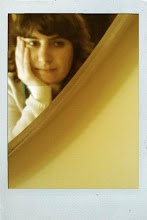
Most animals maintain fairly predictable schedules, rising and retiring at the same times each day. Some, like larks and other songbirds, are early to bed and early to rise. Others, like owls, raccoons, possums and more, become energized when the sun goes down. Humans are unusual in that some people are "larks" while others are "owls," according to Christina Schmidt and colleagues at the University of Liège. They've come up with some interesting findings that help to explain the differences.
Before we get into that, I'd like for you to first take a quiz to determine which group you fall into. The below quiz was devised by Jim Horne of the University of Loughborough. He based it on the famous "Horne-Ostberg test" that was all the rage in the mid 1970's.
Lark or Owl?
1) Breakfast: how's your appetite in the first half hour after you wake up in the morning?
a) Very poor [ 1 ]
b) Fairly poor [ 2 ]
c) Fairly good [ 3 ]
d) Very good [ 4 ]
2) For the first half hour after you wake up in the morning, how do you feel?
a) Very tired [ 1 ]
b) Fairly tired [ 2 ]
c) Fairly refreshed [ 3 ]
d) Very refreshed [ 4 ]
3) When you have no commitments the next day, at what time do you go to bed compared to your usual bedtime?
a) Seldom or never later [ 4 ]
b) Less than one hour later [ 3 ]
c) 1-2 hours later [ 2 ]
d) More than 2 hours later [ 1 ]
4) You are starting a new fitness regime. A friend suggests joining his fitness class between 7am and 8am. How do you think you'd perform?
a) Would be on good form [ 4 ]
b) Would be on reasonable form [ 3 ]
c) Would find it difficult [ 2 ]
d) Would find it very difficult [ 1 ]
5) At what time in the evening do you feel tired and in need of sleep?
a) 8pm - 9pm [ 5 ]
b) 9pm - 10.15pm [ 4 ]
c) 10.15pm - 12.45am [ 3 ]
d) 12.45am - 2am [ 2 ]
e) 2am - 3am [ 1]
6) If you went to bed at 11pm, how tired would you be?
a) Not at all tired [ 0 ]
b) A little tired [ 2 ]
c) Fairly tired [ 3 ]
d) Very tired [ 5 ]
7) One night you have to remain awake between 4am and 6am. You have no commitments the next day. Which suits you best:
a) Not to go to bed until 6am [ 1 ]
b) Nap before 4am and sleep after 6am [ 2 ]
c) Sleep before 4am and nap after 6am [ 3 ]
d) Sleep before 4 am and remain awake after 6am [ 4 ]
8) Suppose that you can choose your own work hours, but had to work five hours in the day. When would you like to START your working day?
a) Midnight to 5am [1]
b) 3am to 8am [5]
c) 8 am - 10am [4]
d) 10am - 2pm [3]
e) 2pm - 4pm [2]
f) 4pm - midnight [1]
9) At what time of day do you feel your best?
a) Midnight - 5am [ 1]
b) 5am -9am [ 5 ]
c) 9am -11am [ 4 ]
d) 11am -17 [3]
e) 5pm-10pm [2]
f) 10pm - midnight [1]
10) Do you think of yourself as a morning or evening person?
a) Morning type [ 6 ]
b) More morning than evening [ 4 ]
c) More evening than morning [ 2 ]
d) Evening type [ 0 ]
Scoring
Add up the points you scored for each answer (they're in the square brackets).
The maximum score for these questions is 46. The minimum is eight.
The higher your score, the more of a morning person you are.
The lower the score, the more you're a night owl.>>
So what's behind these differences? Schmidt and her team scanned the brains of test subject using functional Magnetic Resonance Imaging (fMRI). The scans were conducted when the individuals performed a visual attention task. The task was carried out in two sessions, the first taking place 1.5 hours after waking and the second taking place 10.5 hours after waking, with subjects retaining their natural sleeping and waking pattern.
The results showed no difference in performance or brain activity between morning and evening-type people in response to the attention-task after being awake for 1.5 hours, when the pressure to sleep is low. In contrast, under conditions where the pressure to sleep is heightened, i.e. after 10.5 waking hours, attention performance improves in evening nightowl people versus the "lark" morning types. This heightened alertness is linked to an increase in activity in the suprachiasmatic nucleus area (SCN) and the locus coeruleus (LC) parts of the brain.
So the findings suggest that brain responses may be due to differences in the way that morning and evening types react as pressure for sleep builds up throughout the day. "Larks” suffer more than “owls” from the impact of the increased pressure to sleep as the day unfolds, pressure which prevents the optimal expression of the waking signal by the aforementioned parts of the brain.
Link original

Sem comentários:
Enviar um comentário